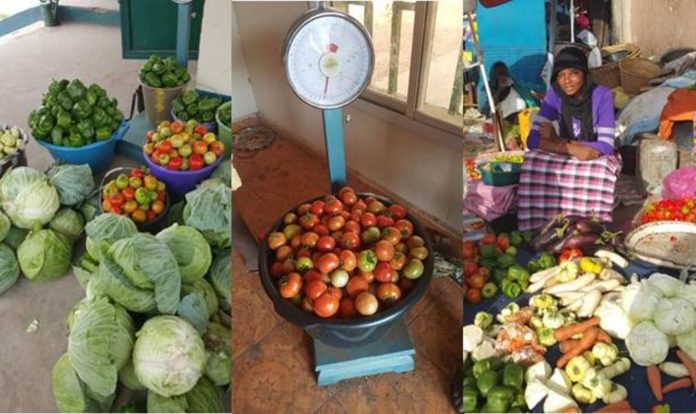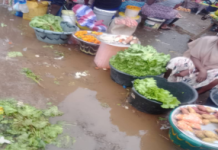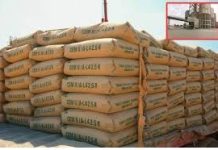By Mamadou Edrisa Njie
The West Africa Rural Foundation (WARF) and the Global Youth Innovation Network Gambia Chapter (GYIN Gambia Chapter), are jointly implementing a two-year project dubbed ‘Agricultural Value Chain Interaction Platforms’ (AVIP). AVIP is an enhancement initiative with funding by the National Agricultural Land and Water Management Development Project (Nema), jointly funded by the International Fund for Agricultural Development (IFAD), the UN agency specialising in Rural Development, and the Government of The Gambia (GoTG).
The goal of AVIP is to contribute to the achievement of key Nema outcomes by establishing operational and functional women and youth-based organisations, with secured access to profitable local, regional and national markets.
Through AVIP, hundreds of young (men and women) are already benefiting from Nema project interventions, to realize increase yields in rice and vegetable production, through their effective and profitable participation in national and regional markets. Producer organizations such as Youth Enterprises, will have increased access to financial and non-financial services through improved interactions with other actors of selected value chain interaction platforms. The resulting effect will be increased employment and revenue for youth and women from these interventions.
At the Dasilameh Youth Garden in the West Coast Region (WCR), a young lady by the name Fatou Seckan, is a producer but has interest in marketing. What she is does is directly linked to the concept of AVIP project. The Dasilameh Youth Garden is funded by Nema project with the ultimate objective of improving the livelihood standards of young people in the community, and the garden is managed by them.
In an interview with Ms Seckan, she stated that the business is a profitable venture; that she has a ‘strong’ link with two bulk buyers at the Brikama market.
“I wake-up as early as 4 a.m to go to the garden and buy fresh vegetables which I transport to supply to my buyers at the Brikama market,” she said.
Paul Mendy, the Nema/P2RS Assistant Monitoring and Evaluation Officer, said AVIP’s concept is structured in a way that different actors in the rice and horticulture value chain, are represented; that it encourages their interaction in terms of production and marketing, and it is about linking demand to supply; that its effect can be seen in the Dasilameh example; that as part of celebrations marking International Women’s Day and in showcasing the achievements and participation of youth in agriculture on this occasion, women are able to mobilize their daily harvest from their gardens, transport the harvests to Brikama Market where they have major bulk buyers.
Access to finance:
The Nema project according to Mendy, has put in place strategies to attract more youth into Agriculture; that the project has a Capital Stimulation Investment Fund (CSIF) matching grant; that since the launching and operationalization of the project implementation in 2012, the Nema project marching grant stands as 45% in project contributions, whiles 55% remains as beneficiary contribution. He further indicated that during the Nema project’s mid-term Review in 2018, project contribution has changed to 60%, whiles 40% remains as beneficiary contribution.
The Nema project according to Mendy, outlines the up scaling of the value chain by focusing more on processing and marketing of home grown vegetables, rice and other crops; that the project is looking at Information and Communication Technology (ICT), by relating it to marketing agro-products; that the project will soon enter into an agreement with Farm Fresh, an online platform that sells local products online.
Meanwhile, IFAD loans support agriculture and rural development, and facilitates and promotes access to microfinance. IFAD projects seeks to reduce rural poverty by improving household food security and income, especially of smallholder farmers, women and young people, in accordance with Government priorities.
IFAD activities also focuses on agriculture and rural development, and aims to open up farm employment opportunities for young people, women and men. IFAD works with traditional kafos (collectively run village groups), to enable IFAD-supported projects reach out to the most vulnerable households.
In The Gambia, IFAD key activities include:
- supporting rice and vegetable value chain development, including strengthening the capacity of farmers, community organisations and their members;
- strengthening access to markets for agricultural products; and
- adding value to rice and vegetable production by strengthening value chain participants, business development, and through a Capital Investment Stimulation Fund.
IFAD financing:
Since 1982, IFAD has supported ten projects and programmes in the country for a total of US $196 million, of which IFAD contributed US $73.1 million. The support has focused on helping Government strengthen and empower farmers through their organisations and communities, with an emphasis on managing and promoting access to markets and linkages to value chains, creating rural financial and credit services, develop livestock, and conduct research, extension and training.





















